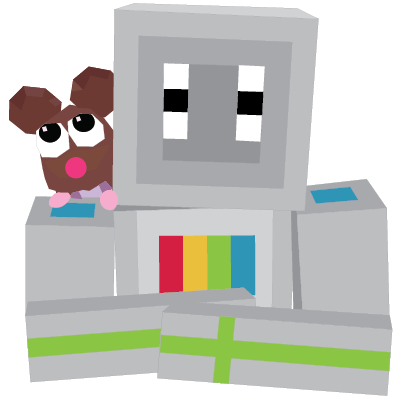Spotlight on Piper Creator: Matt Matz!
Where and what do you teach? EDGE Online Middle School, Salem-Keizer Public Schools, Salem, Oregon. I currently teach 7-8th grade computer science & engineering and design classes.
How long have you been in the teaching field? In various roles as a teacher and administrator for 16 years.
How long have you been teaching STEM? I have taught science for a total of 9 years in middle and high school, and STEM/Computers/Engineering for 3 years.
“... using technology for good in the world - helping kids understand the ethics and responsibilities that come with the power to create.”
What do you see as the most beneficial evolution of STEM in schools? I’ve noticed a trend toward design and invention, solving real-world problems with engineering principles. Also, using technology for good in the world - helping kids understand the ethics and responsibilities that come with the power to create.
Can you share one of your favorite STEM teaching moments? It’s more than one! Honestly, the first time any one of my kiddos gets an LED to turn on and blink because they built a circuit and programmed a microcontroller - their face lights up as much or more than the LED does! That’s the moment when they instantly gain confidence and curiosity.
Do you have a suggestion on how to teach STEM in a diversified classroom (interest levels, tech experience, learning styles, etc)?
I teach in a fully online/distance program which is both amazing and challenging. We send kits home with students, and I teach them how to build circuits from a distance, which I’ve found to be very different than doing it in a classroom! Knowing what I know now, though, I think what works online could easily work in person as well. Because all of my lesson content needs to be published online for my kiddos, I pre-record detailed walk-through videos where I go through the tutorials myself, building the circuits and programs, and talking through what I am doing and why I’m doing it. This means that a lot of my students can simply follow the videos, which frees me up to work in small groups more directly (breakout rooms in Zoom) with students who are struggling. It’s similar to a “flipped classroom”, but it’s online. Even though the videos walk the students through each step, I always pose challenges for them to try to complete at the end to make sure they didn’t just follow the instructions, but that they understood the concepts as well.
What are some tips you can share with teachers who are beginning to teach STEM? It’s messy - don’t be afraid of it! Your students will be all over the place, and honestly, things will break (BTW - make sure your supply budget accounts for that!). If you get frustrated, they will too. Every mistake is a learning opportunity, and the best skill you can teach your students is how to persist through a problem.
Do you have any favorite blogs / websites / magazines / STEM Educational leaders that you follow to learn more about teaching STEM, EdTech, Physical Computing, Coding etc?
I wish I had time to read and learn more - I love being both a teacher and an engineer/content creator for Piper Make, but that does mean that I just don’t have much time left for some of the amazing PD that I know is out there.
The “Maker” community as a whole is pretty amazing. Besides the work that Piper Learning is doing, The Raspberry Pi Foundation, Adafruit, Parallax, Sparkfun, Cyber City Circuits, Evil Mad Science Labs, Make Magazine…this is by no means a complete list, but so many amazing contributions have been made by a lot of amazing individuals over the past 15 years that have made electronics, programming, and engineering/manufacturing accessible to students, educators, and hobbyists.
I was a school principal for a few years, so a lot of my interest in professional development is actually in the area of school improvement as a whole - even though I’ve been a software and hardware hobbyist and engineer for a very long time, I’m still relatively new to teaching STEM/CTE. Good teaching practices work in any subject - I’m a big fan of equitable practices, especially RtI/MTI and grading for equity (Rick Wormelli, Joe Feldman).
Additionally, (and I know this is somehow controversial right now ???) Implicit Bias Training is incredibly powerful. As an engineer, you often have to check your assumptions, and often, you don’t even know they are there until you do some deep self-reflection - understanding how implicit bias works will help you become a better teacher, engineer, and overall human being :)
Right now, what is your favorite Piper project and why? I can only pick one? I love Beam Break for the physics you can do with it. I love Blink because that’s the one that hooks my students every time (followed closely by Traffic Light). I love Servo Bug/Walker - because it’s really cute! And Game Controller, because games! Piper Make Products
“All things in moderation”
Do you have a favorite quote about teaching / life that you share with students? I’m not very profound - so let’s go with “All things in moderation”. We do spend time in my class with the role of technology and its impact on society. Too much is never good, but neither is no technology at all. I have no idea who said it first, but I’ve never found any other quote more true than that.
Who is your favorite superhero? Does anyone who works with engineering or electronics answer with something other than Iron Man?

Team Piper gives Matt a huge shout out for taking the time to answer our questions - we LOVE hearing from our educators! We look forward to future interviews with our new Piper Creator Team. Interested in finding out more about the community? Click HERE - you could be featured very soon!


